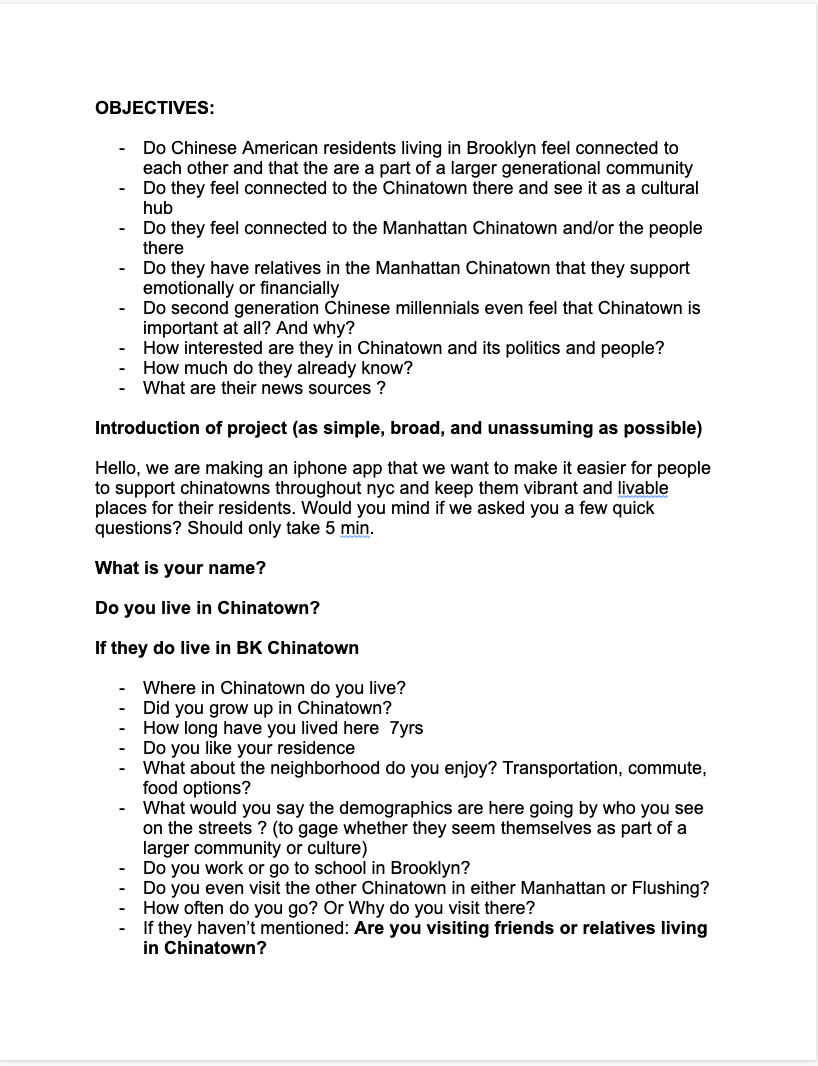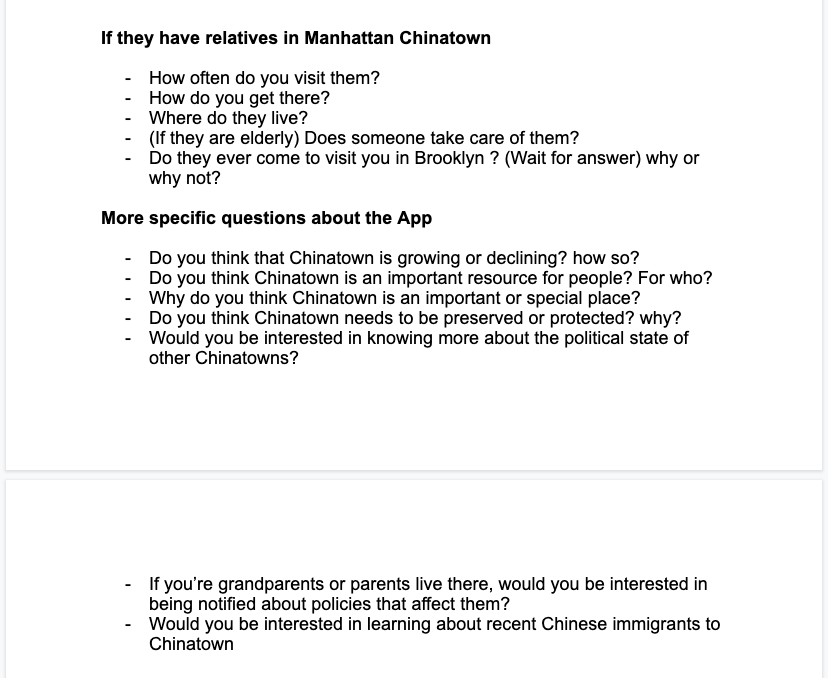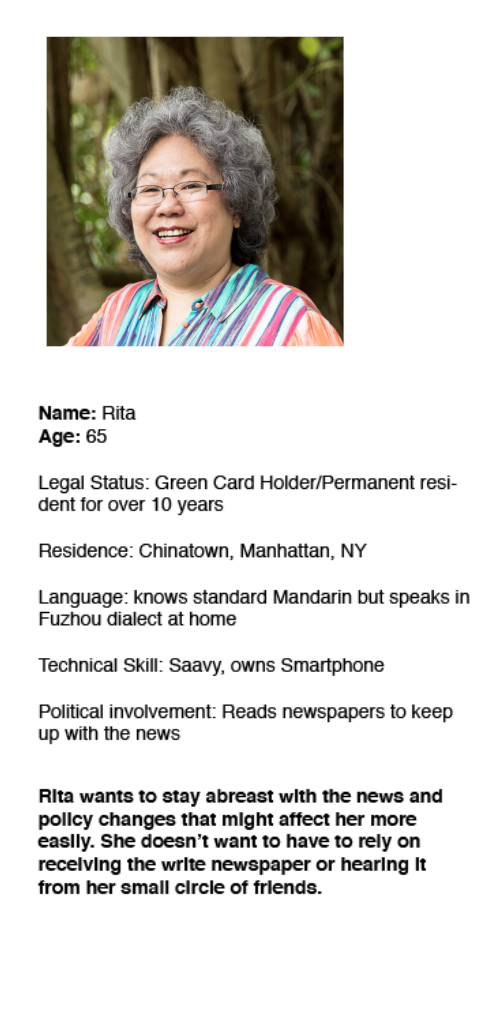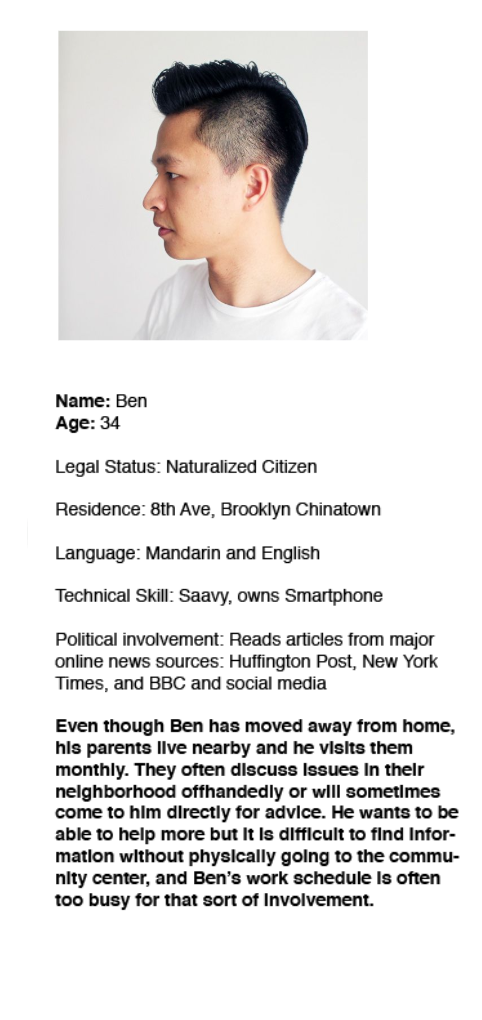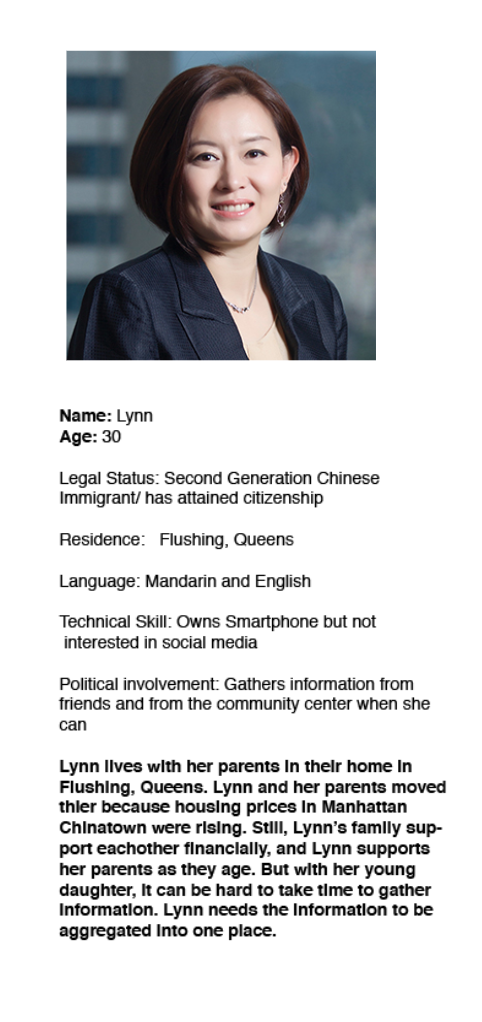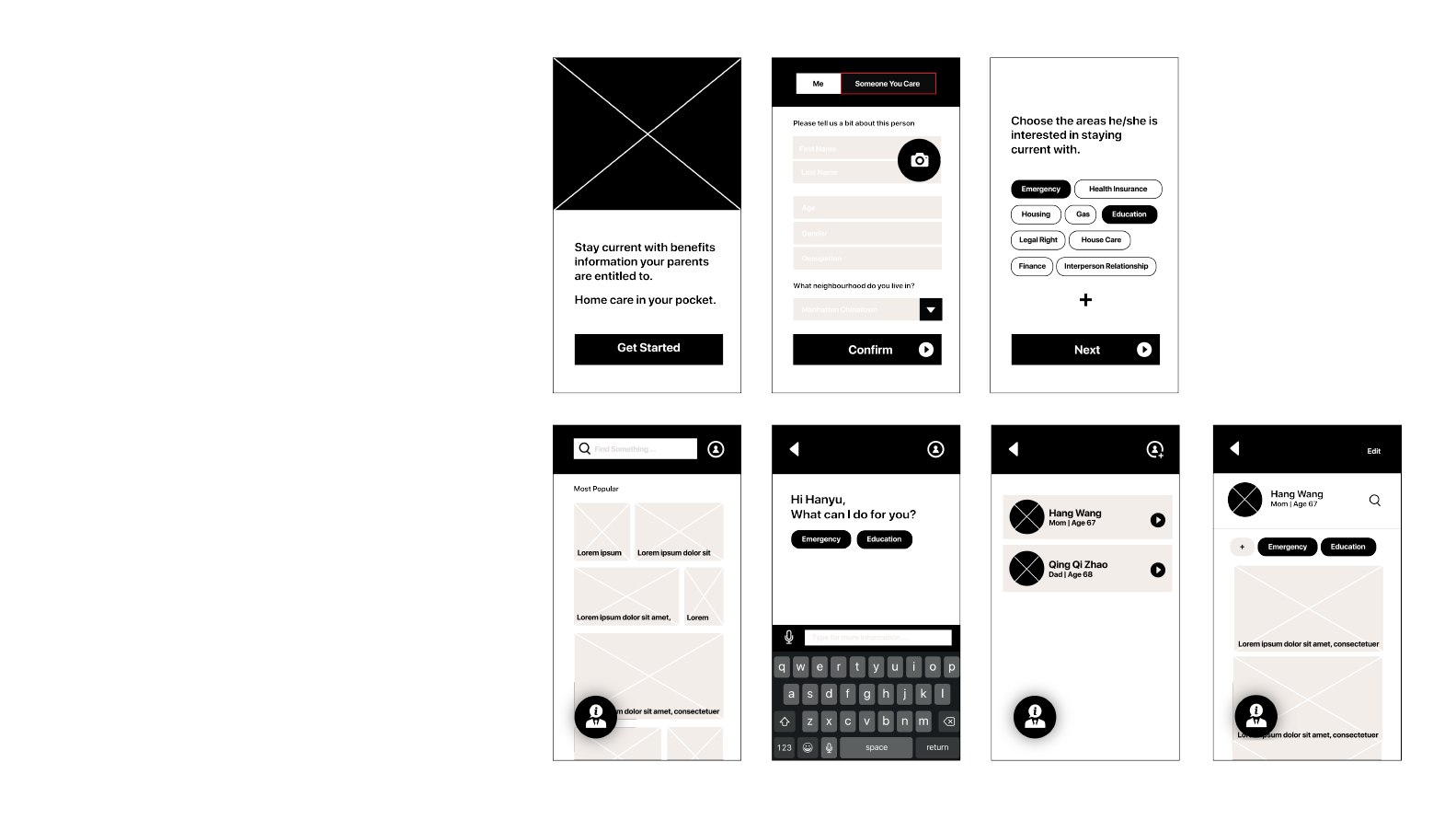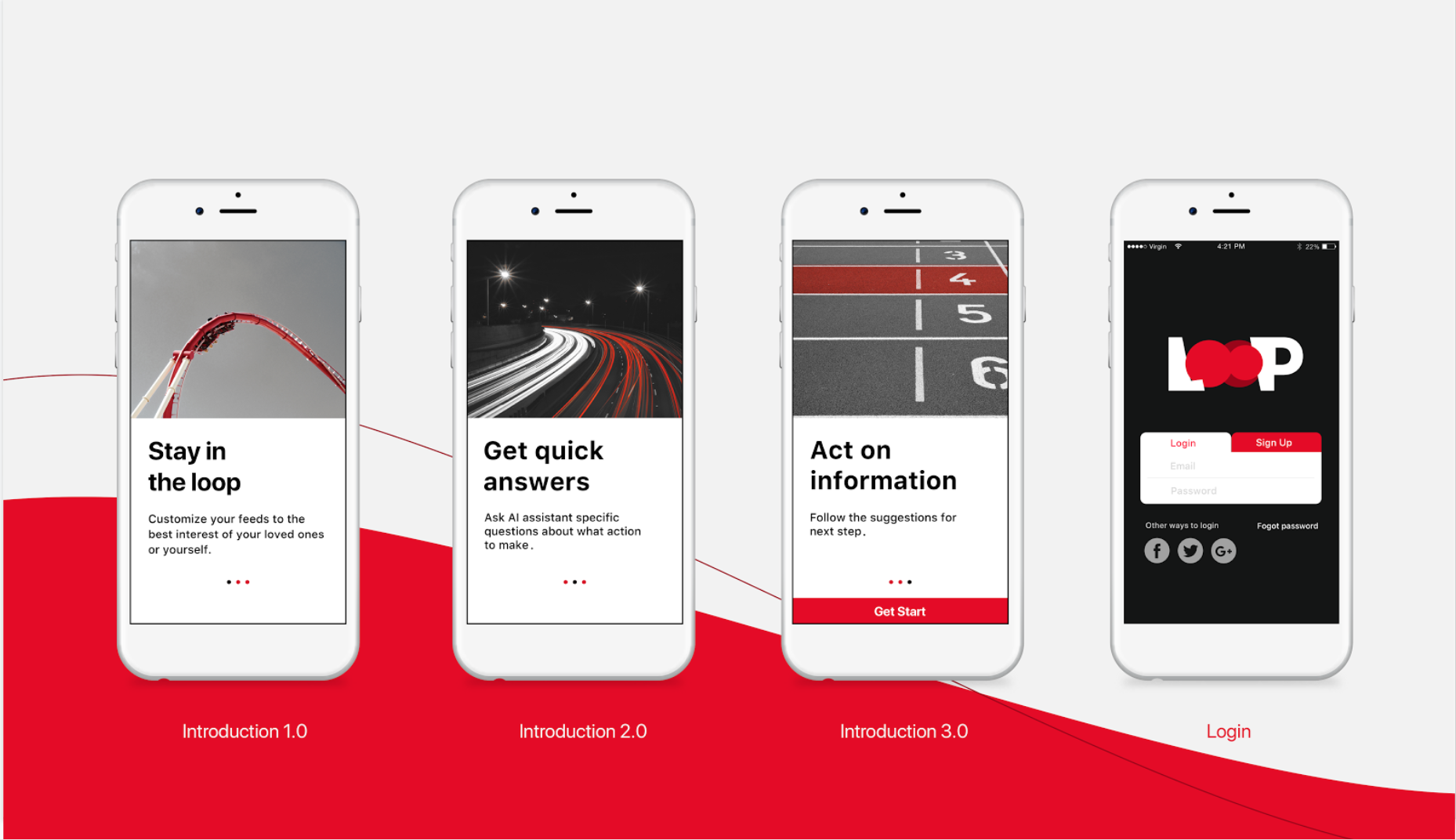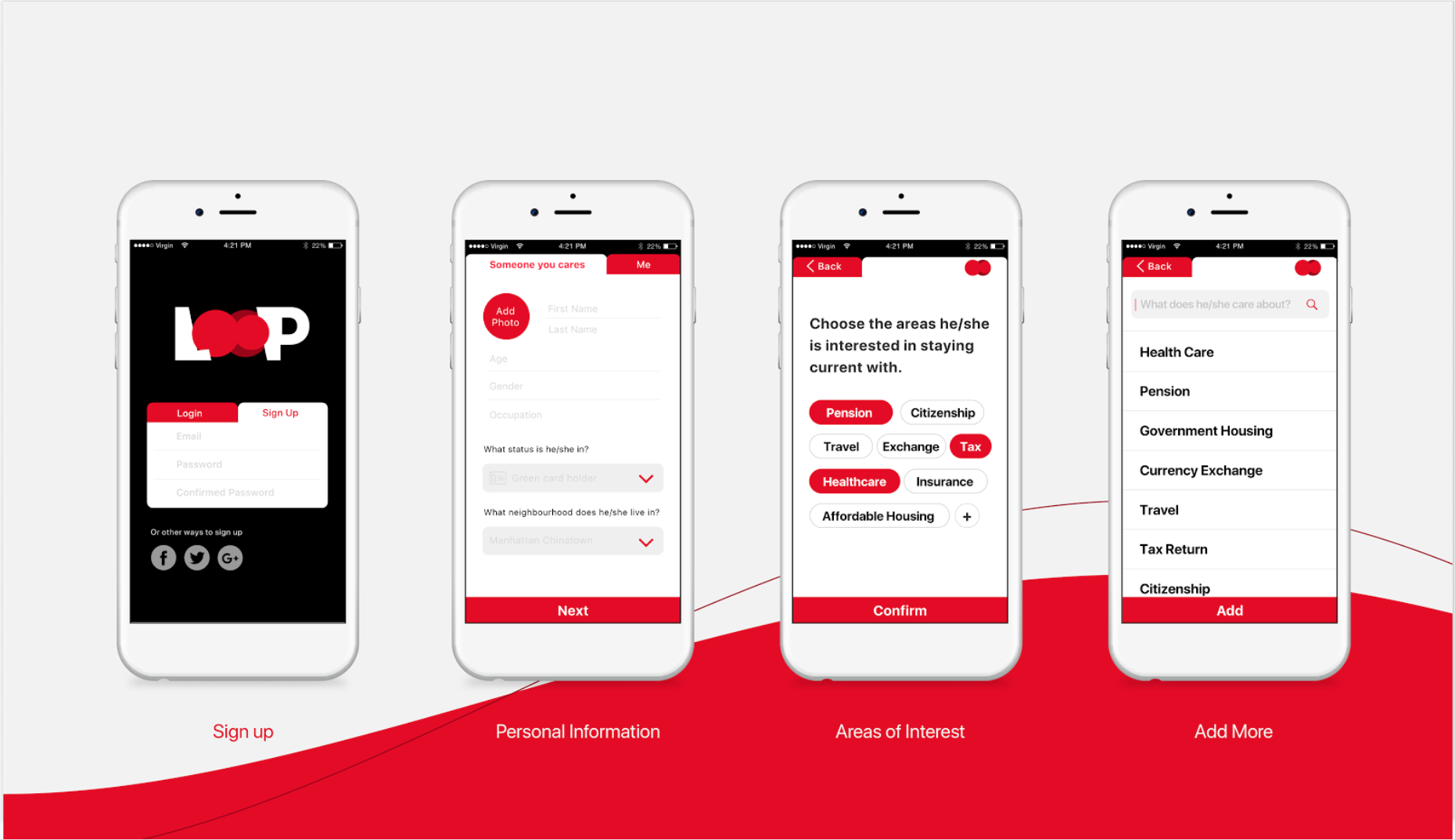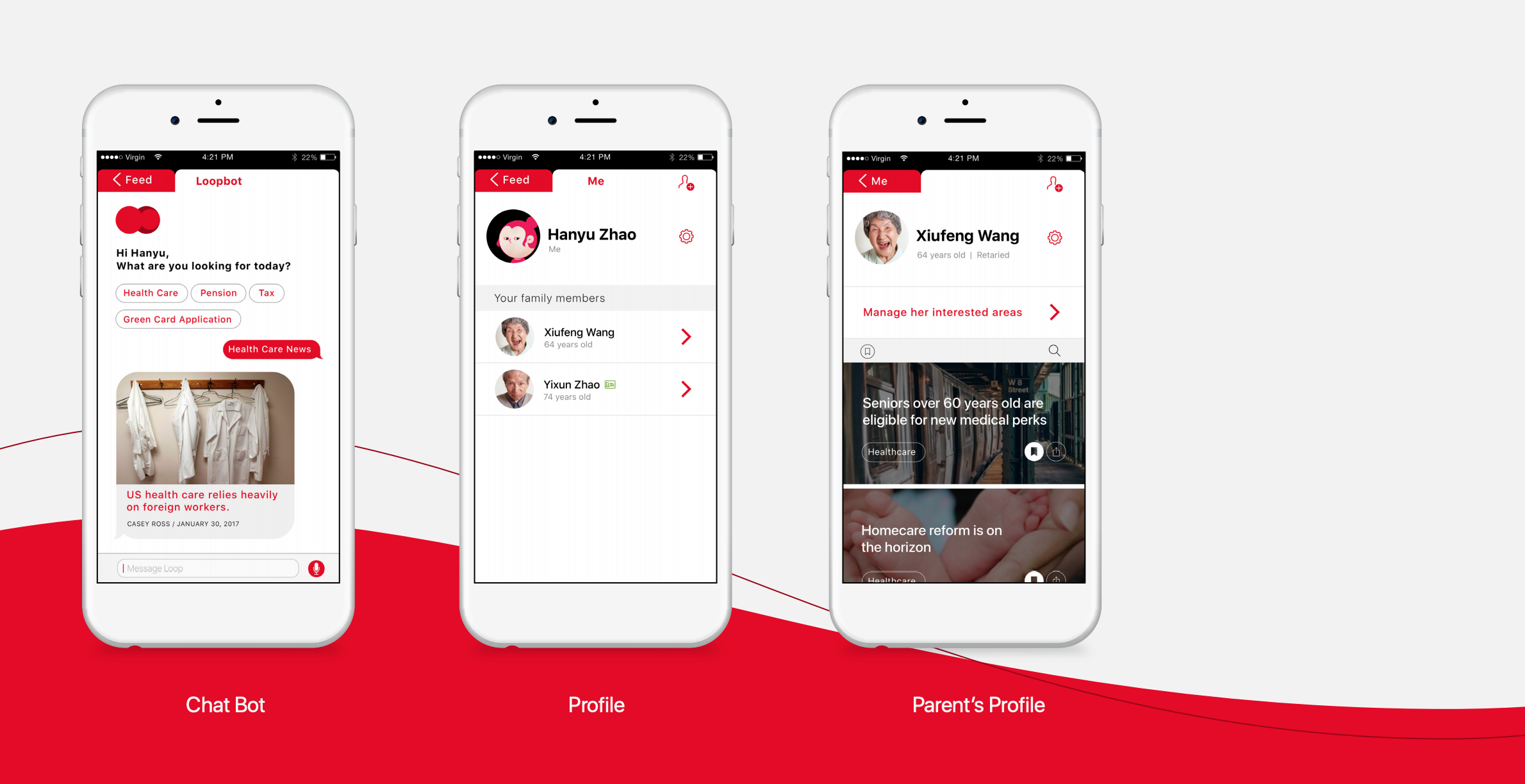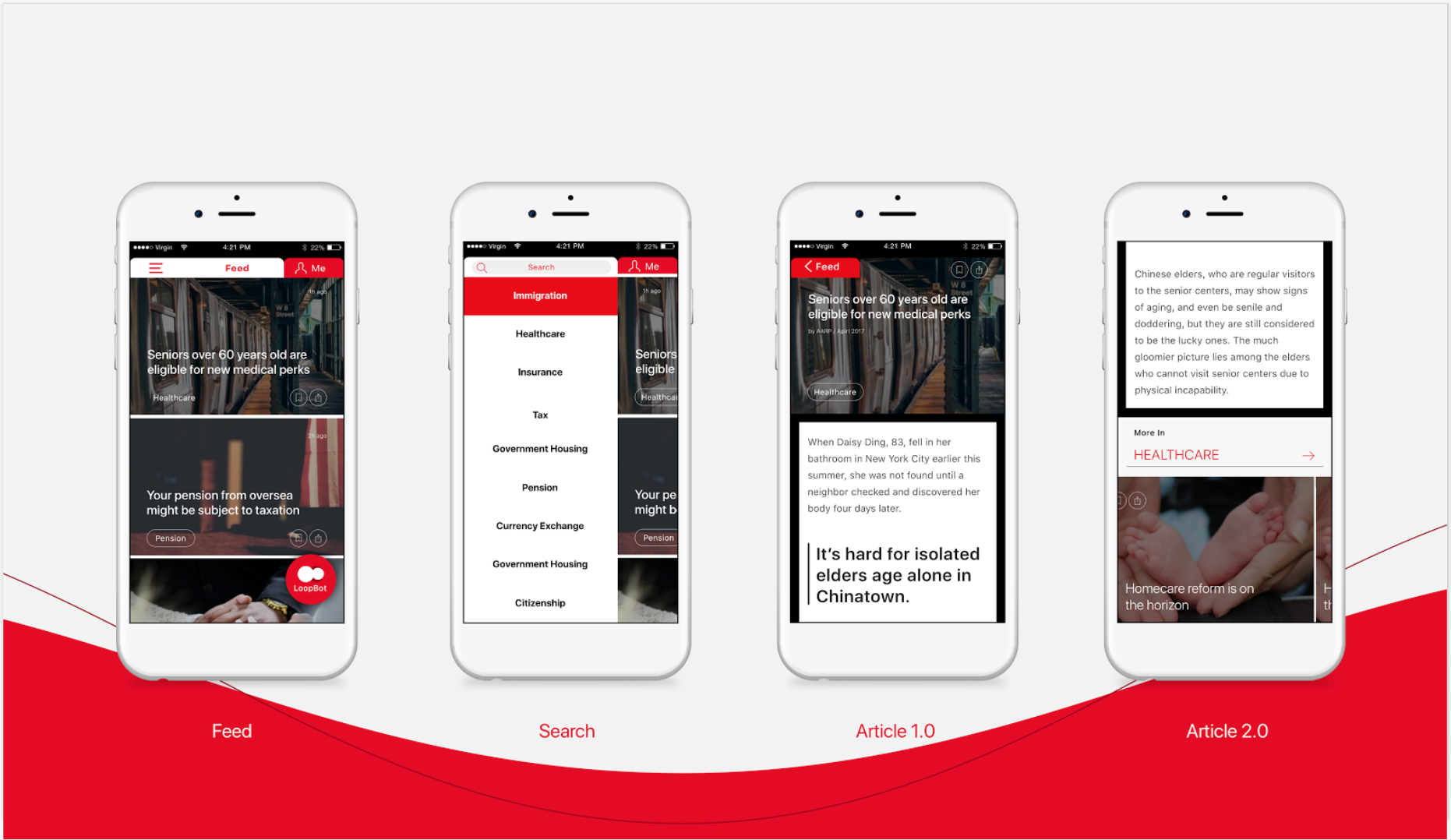Research shows that as second-generation Chinese-Americans move away from their parents and out of NYC Chinatown, the population within the community becomes increasingly elderly and isolated. Loop is designed to help second-generation Chinese-Americans more effectively fulfill their role as caretakers and resources for their aging and distant parents and grandparents.
Surveys & Interviews
Role: UX researcher
As research coordinator, it was my job to design surveys for Chinatown residents and conduct interviews through my teammate and interpreter, Tao. We went to several Chinatown social hubs interviewing senior citizens and retirees in the area.
Primary challenges: Translation, Immigration status
Two primary challenges for this work were translating responses in interviews and building enough trust amongst participants who were concerned about revealing immigration status or being targeted.
Manhattan’s Chinatown, like many other immigrant communities, is close-knit. It was important that we built trust amongst participants as outsiders, made our intentions clear, remained transparent, and conducted research on the participants’ terms and where they felt most comfortable. We found recruiting and speaking to participants in popular and public social spaces helped with trust building and transparency.
Translation was also an issue for me as a researcher, outsider, and someone who did not speak Fuzhounese, a dialect of more recent Chinese immigrants to New York, who are from Fujian. It became clear that live translation was not going to work. In many cases my translators were accepted as insiders more easily than myself as someone who did not speak the participants’ language. It became clear that the study would run smoother if I gave my scripts to the translator and debriefed after the interviews had ended, so we could then make adaptations for the next interview, depending on what data was still needed/missing.


